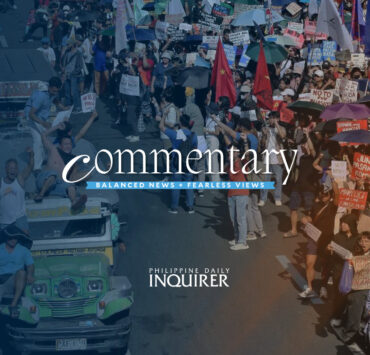Southeast Asian nations caught in US-China tensions

As Asia adapts to the new reality of a US-China trade war, the precarious position of many smaller Southeast Asian nations has been laid bare.
Countries that once benefited from both China’s foreign direct investment (FDI) and US trade and aid programs, now face threats to both of these. As new US tariffs and retaliatory Chinese tariffs come into effect, US aid frozen, and Chinese loans approaching maturity, there are fears that countries like Indonesia may increasingly be used as pawns in escalating hostilities between great powers.
The US and China have, for several years, battled for the top spot when trying to influence Southeast Asian nations. China has continuously used its economic dominance to become the go-to spot for loans which it uses to leverage soft power, while the US has worked hard to promote democratic values in the region using sanctions through the Magnitsky Act and trade restrictions.
The aim of the US tariffs on Chinese imports is twofold: to decrease reliance on Chinese goods, and to boost US domestic production, a promise trumpeted by Trump’s campaign speeches.
The reality however is that Chinese production was only shifted to other Southeast Asian countries like Thailand, Laos and Cambodia which enjoy lower or zero tariffs on exports to the US. In effect, the US did not reduce its reliance on Chinese goods but instead redirected the supply chains through other countries, strengthening the smaller states’ economic ties to both China and the US.
There are also mounting fears that these tariffs could result in Chinese products flooding Southeast Asian markets if they prove too expensive for US importers. This short-term shock will mean increased pressure to protect local manufacturers from one of their main trading partners.
For decades, Southeast Asian nations have relied on FDI from China to support their growth. In 2022, China accounted for approximately 80 percent of Cambodia’s FDI, using Belt and Road Initiative (BRI) projects such as the controversial Dara Sakor resort and hydropower dams to prime Cambodia’s economy for rapid expansion. But these loans come with maturity dates which are fast approaching and could be disastrous for the region’s economic stability.
China’s own economic growth has started to slow, and with it, so have the ambitions and investments of the BRI. Trump’s tariffs have left it with two options: continue with an increasingly inward-looking China, doubling down on the country’s current strategy and further reducing its support for peripheral partners, or becoming the “savior” that fills the void left by the dominant power.
The first option would mean calling in those loans once handed out freely, likely resulting in the crippling of the region’s economy. For some nations that rely on Chinese backing to prop up their leaders, fending off EU and US sanctions and conditional tariffs for human rights abuses could lead to political instability.
However, China has appeared to take the second route. The ongoing freeze for USAID has also severely impacted the region and its fight for democracy, human rights, and sustained economic growth. China’s willingness to step in and fill this gap could point toward a renewed shift toward dependence on China in the region.
While Chinese investment has been, and will continue to be, instrumental in the region’s development, this expected dominance once China takes the place of the US could alter the power balance in the region.
This means security issues such as the South China Sea may no longer be seen as regional issues if China chooses to exercise its economic influence in political matters. Domestic issues, such as Cambodia’s democratic backsliding, could worsen without the influence of the US, spilling over into other countries as assassinations continue to take place on foreign soil, and cyber slavery runs rampant.
To ensure the stability and prosperity of the region, China cannot become the sole provider of aid and trade for these nations.
The reality, from a US standpoint, is that it is neither possible nor desirable to stop the import of all goods. Attaching human rights, rule of law, or good governance conditions to current “Most Favored Nation” status could be a powerful tool for promoting stability and accountability in smaller states. It will also reduce dependency on China and encourage more balanced economic relationships.
—————-
Samady Ou is a Cambodian youth activist, a Human Rights Foundation Freedom Fellow and a youth ambassador for the Khmer Movement for Democracy.
—————-
The Philippine Daily Inquirer is a member of the Asia News Network, an alliance of 22 media titles in the region.

















